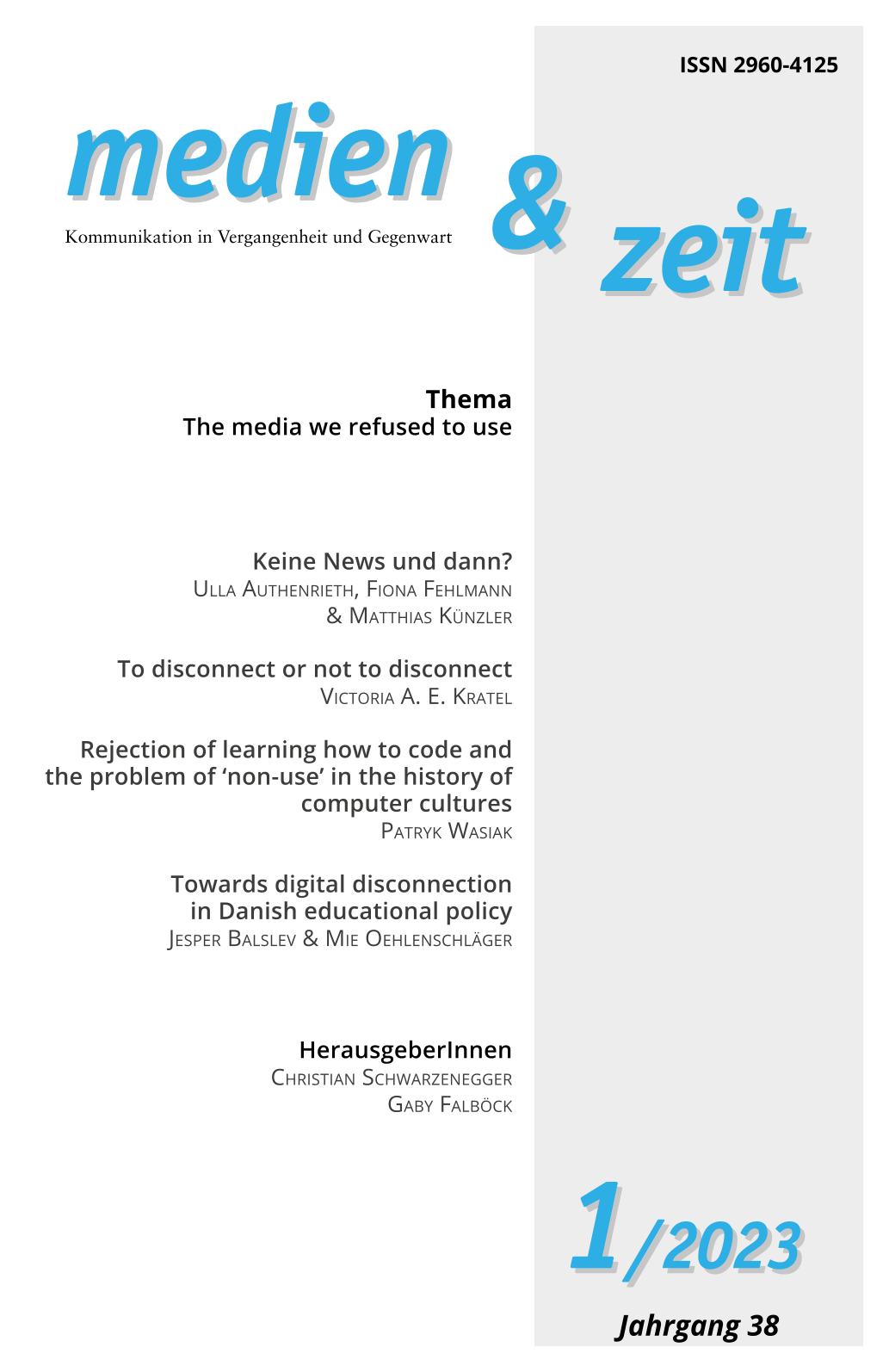Rejection of learning how to code and the problem of ‘non-use’ in the history of computer cultures
Keywords:
non-use, programming, computer culture, retroprogramming, computer literacy, LOGO, learn to codeAbstract
This paper investigates how a host of social actors, such as computer science experts and educators, discursively constructed both positively valued ‘user-programmers’ and negatively valued ‚non-programmers,‘ that is computer users who reject the practice of writing programs on their computers. I argue that the central theme of such a strategy was user agency and the question of having control over the technology that one is using in everyday life. Firstly, I investigate two key themes of the discursive construction of non-programmers in the era of the microcomputer of the 1980s, the discourses towards economies and social development related to computer literacy programs, and next, the key role of programming as a developmental tool for children’s education. Later, I compare that historical era with the contemporary ‘learn to code’ movement and investigate how it outlines the disadvantages of the neglect of learning programming.
Downloads
Published
How to Cite
License
Public access to articles in the journal medien & zeit is free of charge, at no charge to authors, and is available to all readers under the Creative Commons Attribution-NonCommercial-NoDerivatives 4.0 license. The rights for the contributions belong to the respective authors (no apc).



